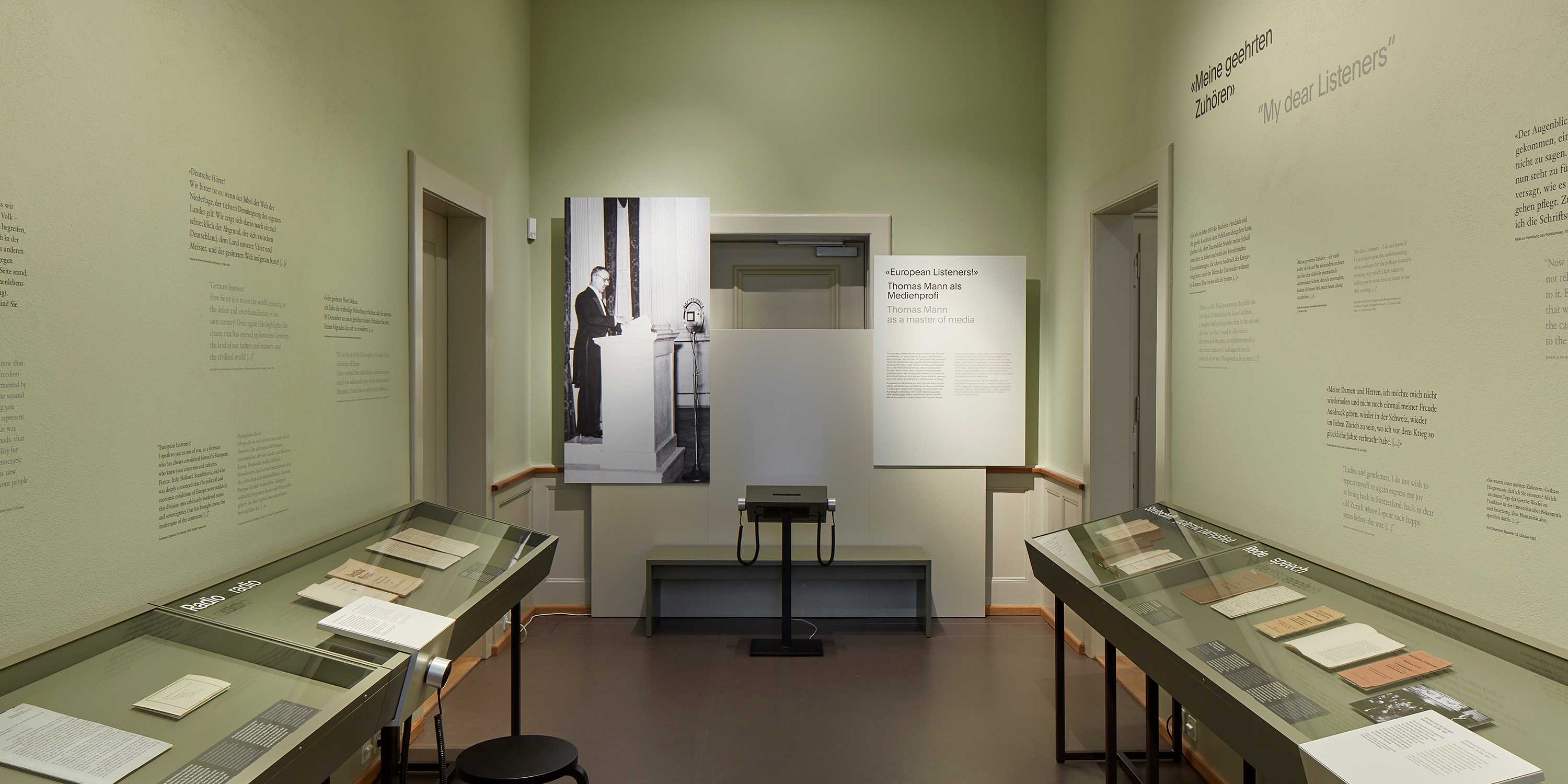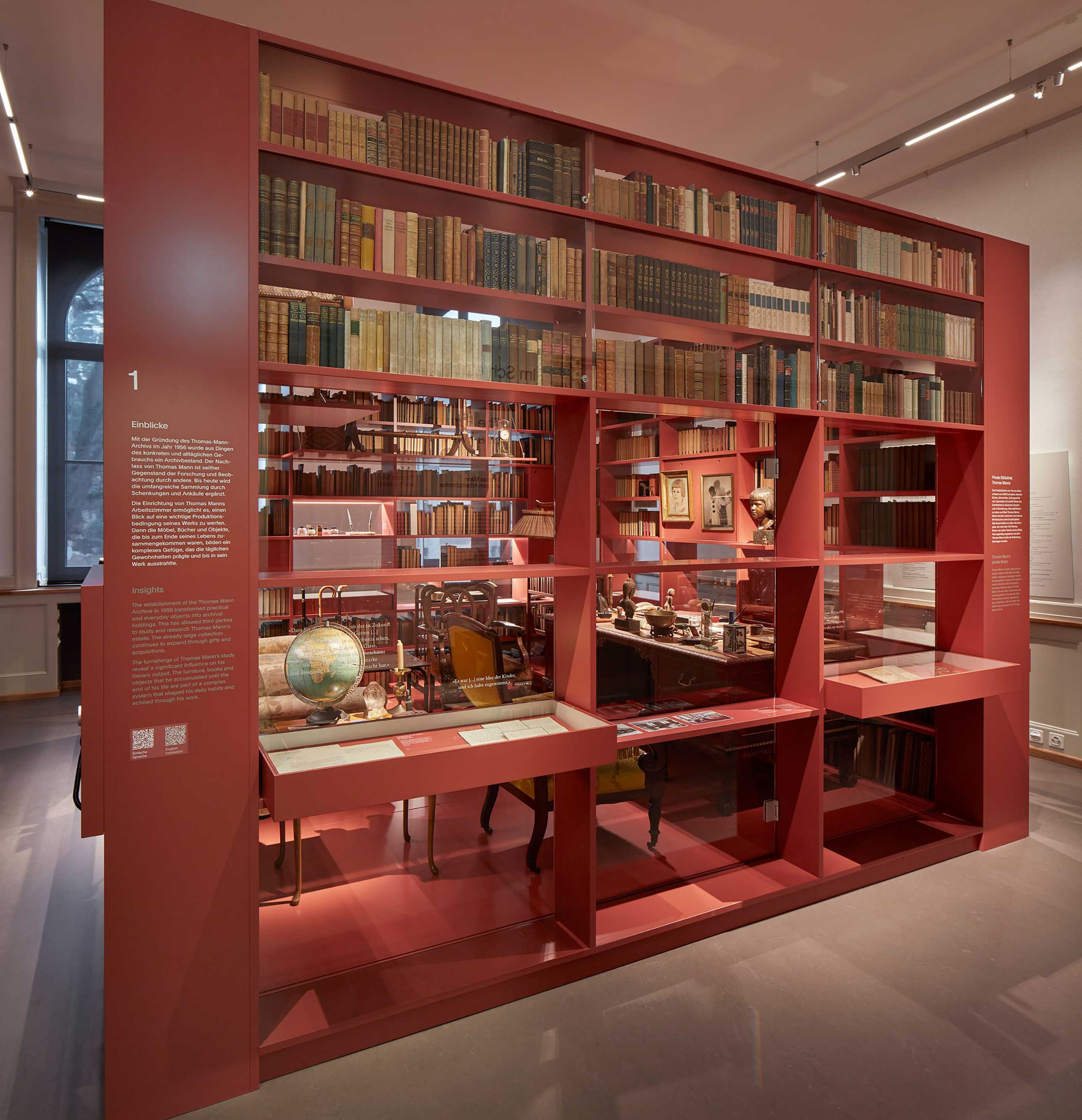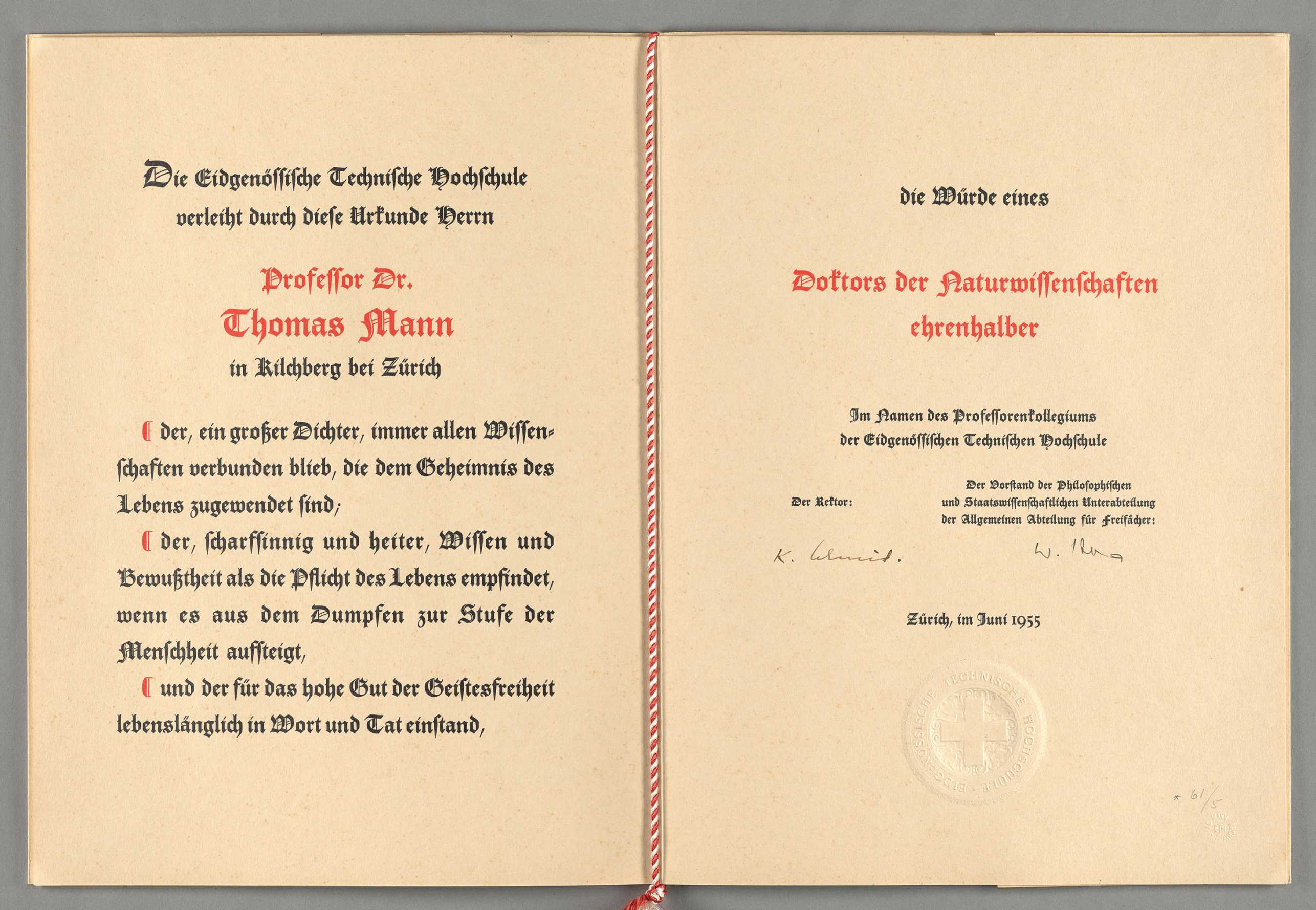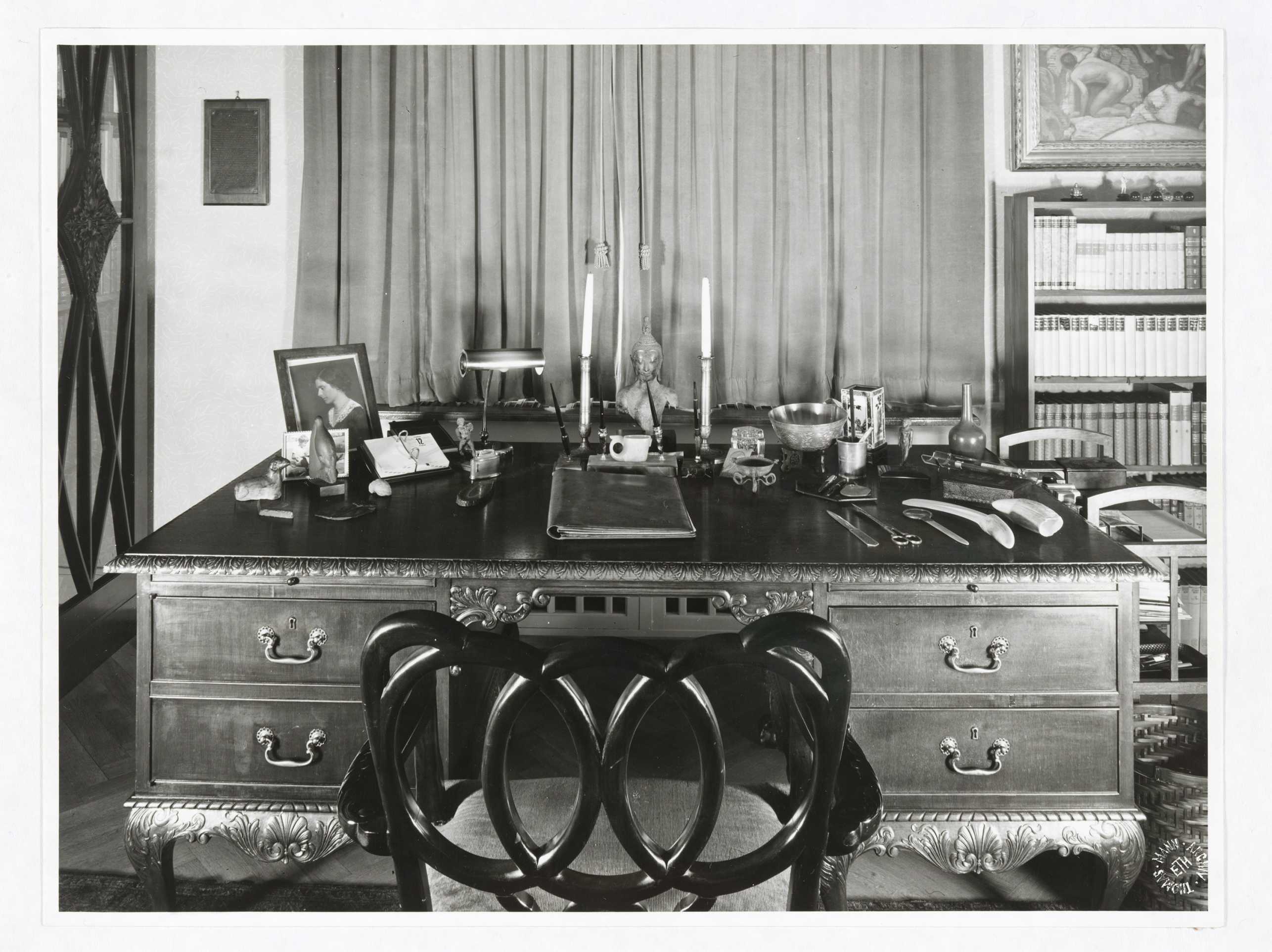
“I speak to you as one of you”
The Thomas Mann Archive in the ETH Main Building provides insights into the author’s lifelong interests, works and personal effects. A ceremony to celebrate the reopening of the famous archive will be held this evening.
The Thomas Mann Archive is set to reopen this evening, with two exhibitions that raise awareness of history and promote sensitivity towards the present. The permanent exhibition “The Furnishings of a Writer. Thomas Mann and his study” has been fully redesigned, and the temporary exhibition “Thomas Mann. Europe beware!” is timely and highly topical.
Thomas Mann was one of the twentieth century’s most significant writers, and the three phases of his life outlined below represent his work, his political activities and his connection to ETH Zurich.
Zurich, June 1955
On Thomas Mann’s 80th birthday, he was awarded an honorary doctorate in the natural sciences by ETH Rector Karl Schmid. According to the text on the certificate, the doctorate was given in recognition of the author’s “advocacy in word and deed for the highest good of intellectual freedom over the course of his life”. This cemented the relationship between Mann and ETH Zurich. Mann died two months later, and his heirs decided to donate his estate to Switzerland – the country to which Mann had felt a special attachment during his life. One year after his death, the Federal Council signed the donation deed, and the university founded the Thomas Mann Archive.
After being housed in the Bodmer House for many years and spending around six years in temporary accommodation on the Hönggerberg campus, the Thomas Mann Archive is now moving into the ETH Zurich Main Building. “I’m glad that Mann’s estate will enjoy a prominent place on the ground floor of the main building,” says Ulrich Weidmann, ETH Vice President for Infrastructure. “The Thomas Mann Archive joins the Graphische Sammlung and the Max Frisch Archive, putting three of our important cultural centres under one roof and making them accessible to the public.”
Los Angeles, January 1943
Thomas Mann held a radio address on the tenth anniversary of Adolf Hitler’s seizure of power. “European listeners!” he addressed his audience before expounding on his remarkable view of Europe as a community that transcends (at times warring) nation-states:
“I speak to you as one of you, as a German who has always considered himself a European, who knew your countries and cultures, France, Italy, Holland, Scandinavia, and who was deeply convinced that the political and economic conditions of Europe were outdated; the division into arbitrarily bordered states and sovereignties that has brought about the misfortunate of the continent.” (From: Thomas Mann, Gesammelte Werke in dreizehn Bänden, Vol. XIII, Frankfurt am Main 1974, p. 749)
The temporary exhibition “Thomas Mann. Europe beware!”, which runs until early August 2023, shines a spotlight on Mann’s noteworthy commitment to the European project. Europe was a lifelong interest of Mann’s, both as a cultural space and a political project. In a video installation, authors Laura de Weck, Dana Grigorcea, Usama Al Shahmani and Michail Schischkin speak about the significance of Mann’s ideas to the Europe of today, which is once again struggling to find cohesion in the face of the war in Ukraine.
Munich, late 1920s
It was during this time that Thomas Mann acquired his famous desk that later accompanied him into exile in Küsnacht after Adolf Hitler rose to power in 1933. Five years later, the heavy mahogony piece followed the author to the US, where it stood in his offices in Princeton, New Jersey, and Pacific Palisades, California. In 1952, the desk returned to Switzerland, first to Erlenbach before landing in Kilchberg. The nearly two-metre-long piece of furniture, with its eight drawers and floral-inspired carvings, always served as a symbol of home and familiarity to Mann during his time in exile.
67 years later, the desk is the centerpiece of the permanent exhibition “The Furnishings of a Writer. Thomas Mann and his study”. Dr Tobias Amslinger, who heads up the literature archive at ETH Zurich, elaborates on the newly reworked exhibition: “We intentionally avoided going for a historical look. We want to take a contemporary view of Mann’s legacy.” How did the Nobel Prize-winning writer work? What habits shaped his writing process? What did his daily routine and family life look like? Answers to these questions can be found in the carefully renovated space that now houses the Archive. In addition to these insights, the Archive’s temporary exhibition builds a striking bridge to the present. “Literature is responsible for confronting the big issues,” says author Usama Al Shahmani, who fled Iraq in 2002 and has been living in Switzerland ever since. The new Thomas Mann Archive shows how the author lived out this responsibility. Upon viewing the exhibitions, one conclusion is inescapable: the content of Mann’s appeal to his “European listeners!” hasn’t lost its urgency or relevance, even 80 years later.
Thomas Mann Archive
Opening times Monday to Sunday, 10 a.m. to 5 p.m.
Location: ETH Main Building, Exhibitions Rooms E43-45, Rämistrasse 101, 8092 Zurich
Contact: tma@library.ethz.ch, 044 632 40 45
Website: tma.ethz.ch



Comments
No comments yet